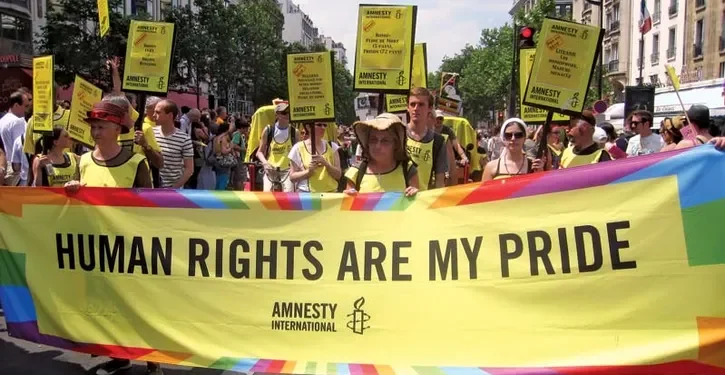Amnesty International, founded in 1961 by British lawyer Peter Benenson, is a global movement focused on protecting human rights. This non-governmental organization (NGO) operates in more than 150 countries and territories, striving to end abuses of human rights through research, advocacy, and campaigning.
The inception of Amnesty International was inspired by an article written by Benenson, “The Forgotten Prisoners,” which highlighted the plight of individuals imprisoned for their political or religious beliefs. This call to action resonated globally, leading to the establishment of an organization dedicated to promoting and defending human rights universally.
Amnesty International’s mission is grounded in the Universal Declaration of Human Rights, a document adopted by the United Nations in 1948. The organization campaigns against various forms of human rights violations, including torture, unfair trials, discrimination, and the death penalty. It also advocates for the rights of refugees, women, indigenous peoples, and marginalized communities.
One of Amnesty International’s key strategies is conducting meticulous research and producing detailed reports on human rights violations. These reports are used to inform and pressure governments, international bodies, and corporations to implement changes. For instance, Amnesty’s reports on the use of torture by governments have led to international condemnation and reforms.
The organization is also known for its powerful global campaigns, often mobilizing public opinion to exert pressure on authorities. One notable campaign is the “Write for Rights” campaign, an annual letter-writing event where millions of people worldwide write letters on behalf of individuals facing human rights abuses. This campaign has led to significant positive outcomes, including the release of prisoners of conscience and improved conditions for others.
Amnesty International’s structure includes a global network of local chapters and volunteers, who are crucial in grassroots mobilization and advocacy. These local groups engage in activities ranging from public demonstrations and educational programs to lobbying government officials.
Despite its significant achievements, Amnesty International has faced criticism. Some argue that its reports can be biased or lack context, while others claim that its advocacy efforts sometimes conflict with local customs or political situations. Nonetheless, the organization continues to be a vital force in the global human rights movement, striving to remain impartial and evidence-based.
Financially, Amnesty International is funded by donations from its global membership and supporters, ensuring its independence from government or corporate influence. This independence is crucial in maintaining the organization’s credibility and objectivity.
In conclusion, Amnesty International remains a beacon of hope for countless individuals suffering from human rights violations worldwide. Through its relentless research, advocacy, and campaigning, the organization continues to uphold the fundamental principles of human dignity and justice.
newshub



Recent Comments